Rather exotic, intriguing, colourful, with its crooked alleys and no sewerage – that is how urbanist Zdravko Petrov described Sofia after the liberation of Bulgaria (in 1878) in an interview with Radio Bulgaria. On 3 April, 1879, the Constituent Assembly in Tarnovo approved the idea, endorsed by prominent public figure Marin Drinov, and unanimously chose Sofia to be the capital of newly liberated Bulgaria. The city quickly began to grow and develop in the spirit of old Europe. Many of Bulgaria’s intellectuals and politicians moved to the new capital with their families. One of them was poet, folklorist and one of the politicians who built the new Bulgarian state – Petko Rachov Slaveykov. At the end of that same year, 1879, he bought a Turkish house on Kafene Bashi square, close to the newly opened first Bulgarian printing works owned by Yanko Kovachev. After Slaveykov’s death, on 1 July, 1895, the square around his house was renamed to honour him – to Petko Rachov Slaveykov, and his efforts were continued by his like-minded associates and friends. One of them was Petko’s youngest son Pencho Slaveykov.
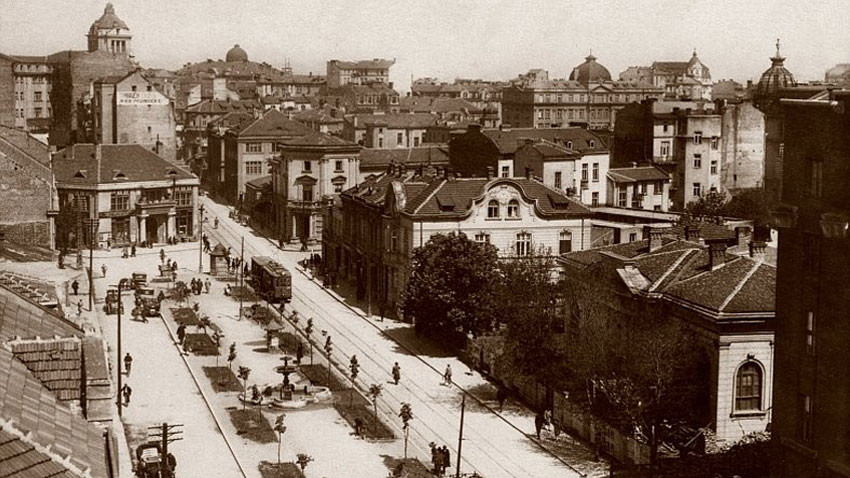
Through the years, Slaveykov square has preserved the spirit of times long gone, and has continued to be of service to Bulgarian culture and art. In 1926, the administrative building of the ministry of public buildings, roads and public works was built – the building was designed by one of the first architects in the country Victoria Angelova. In 1990, the building became home to the Sofia City Library - one of its halls is called “Victoria”, after the woman who created it.
In the most modern history of democratic Bulgaria, Slaveykov square was home to the biggest outdoor book market, and after its reconstruction in 2000, the emblematic iron bench was installed, on which sit Pencho Slaveykov with his distinctive hat and his cane, and Petko Rachov Slaveykov.
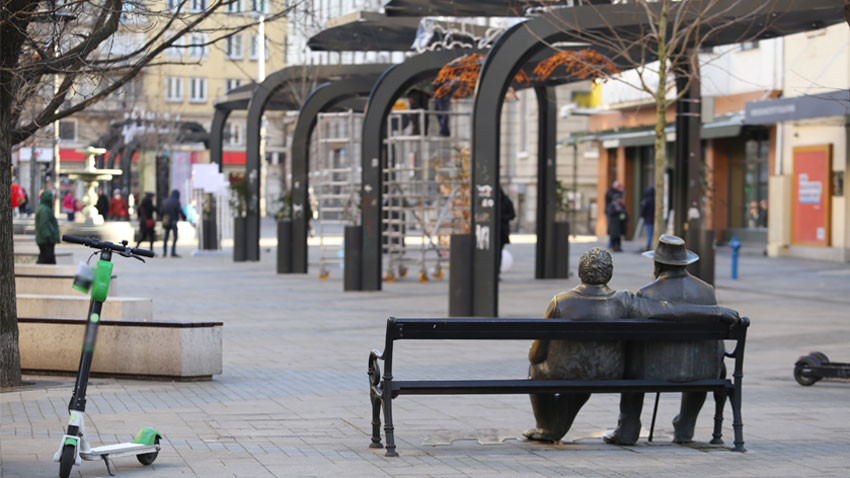
The bench with its figures is the work of renowned sculptor Georgi Chapkanov, and the idea belongs to architect Stanislav Konstantinov. In 2022, more benches were added under the project Hidden Letters of the Reading Sofia foundation. On 24 May, considered by many to be the most Bulgarian of all holidays, this emblematic spot in the city will play host to the one-day festival “Let’s read some” (Da poChetem). The initiative is being organized for a third consecutive year, but due to the Covid-19 restrictions, this is the first time the festival is taking place on such a scale, with all kinds of activities and a diverse cultural programme, says Yana Stefanova, one of the organizers of the festival:
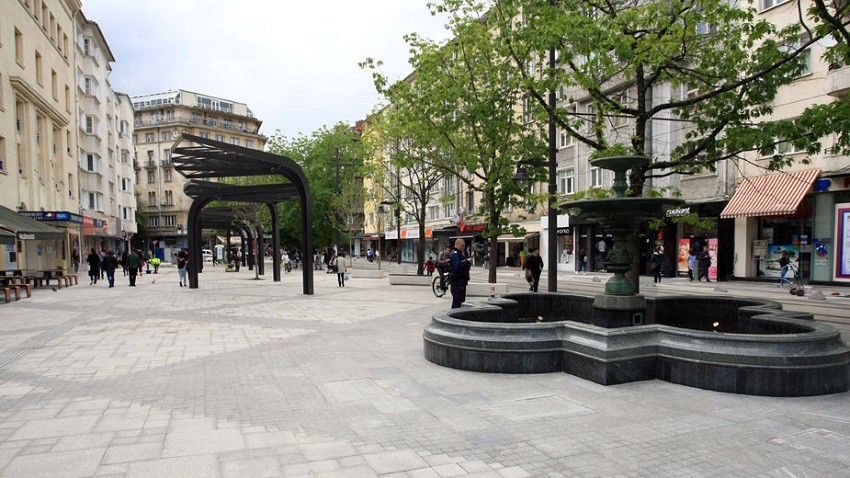
“Slaveykov square is, without any doubt, the literary heart of the city. Initiatives like ours take us back to the time when there were books being sold there, and when life revolved around the Bulgarian creative spirit. A time when Slaveykov square was well and truly a living and breathing urban space. Our idea is to bring people back to the square, to give it back its literary mission in various ways that will bring people closer to Bulgarian literature and culture.”
Especially for the “Let’s read some” festival, the square will be transformed visually, in a way that is inspired by the Cyrillic alphabet, there will be reading “nooks”, a bar zone and a mini bazaar for books and original literary souvenirs.
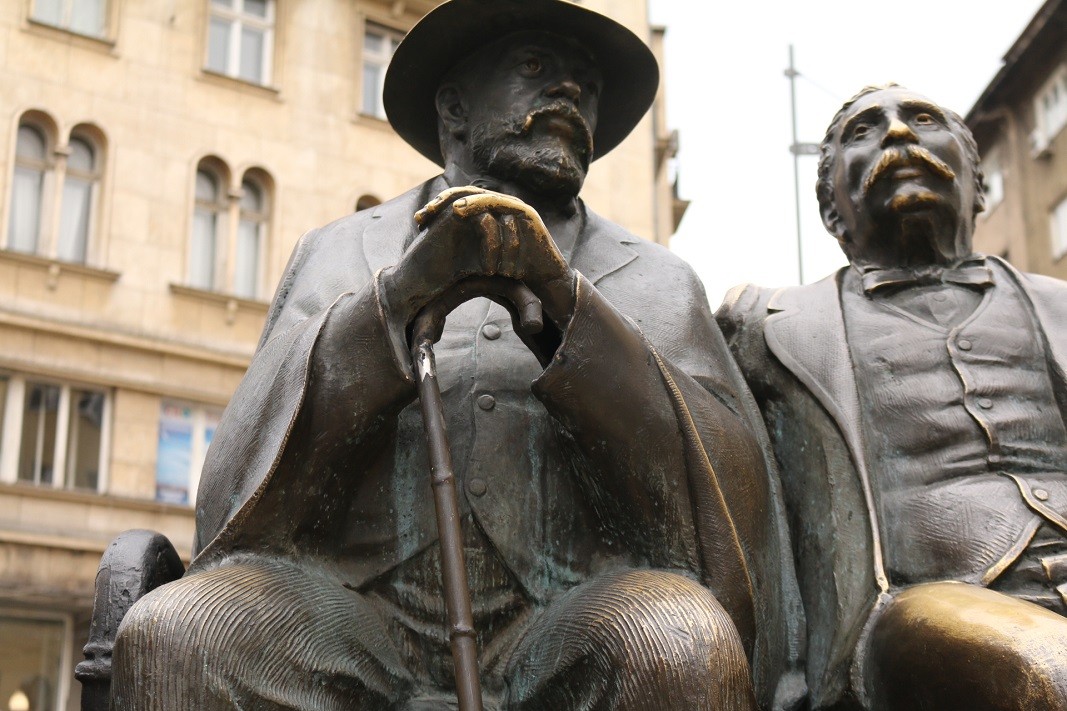
From the morning of 24 May, visitors and passers-by will be able to get into the spirit of the festival with audio clips from works by Ivan Vazov, Pencho Slaveykov, Peyo Yavorov, Hristo Smirnenski and other authors. Throughout the day they will be able to buy a “surprise book” from the big open book installation. The programme on the grand stage will begin with literary readings and a literary workshop for children. Then, several literary walking tours of the “writers’ quarter” will begin from the emblematic Slaveykov bench. Despite the architectural and societal changes through the years, Slaveykov square in the centre of Sofia has preserved its spirit and the symbolical bond with literature and books, Yana Stefanova says and adds:
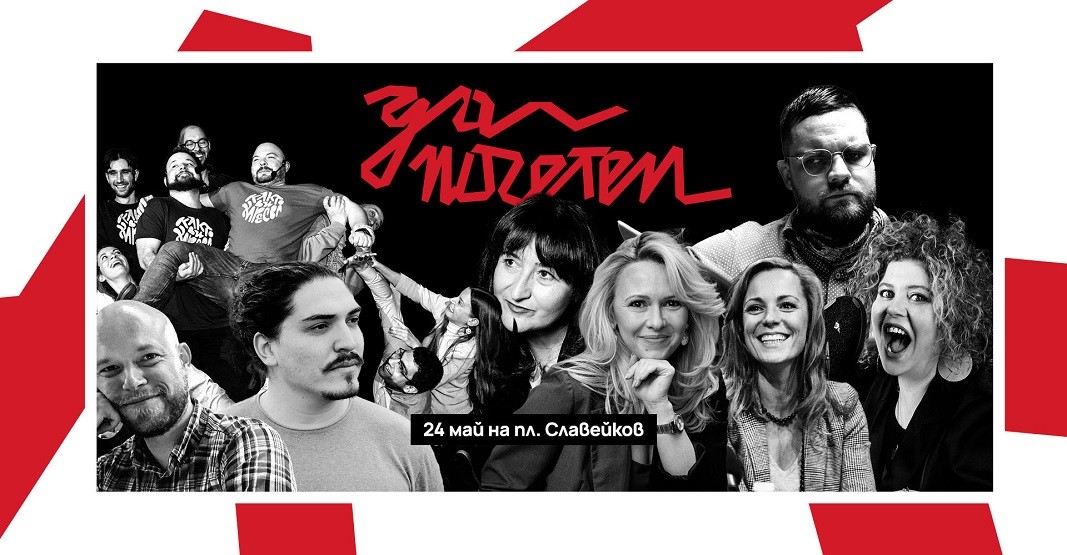
“We have distinctive symbols, a reminder of the history of the square and its primary role. I believe that cultural initiatives such as this, if organized regularly throughout the year, will revive and bring back the creative spirit of Slaveykov square and other places around it.”
More:
Translated from the Bulgarian and posted by Milena Daynova
Photos: courtesy of the organizers, archive, BGNES, stara-sofia.com
A young Bulgarian artist decided to leave this world in the middle of the past century in order to preserve his incorruptibility, even though he was defeated by the system on a purely physical level. Currently, in the gallery of the..
Musical, culinary, folklore events… the event program in Bulgaria is saturated, so much so that experts are already talking about how the alarmingly growing number of new festivals should be limited. "A clear strategy is needed: which existing..
Bulgarian society knows very little about the Bulgarian emigrants to Argentina. The curious story of the path of our compatriots to the South American country and the threads by which they are connected to their ethnic roots thousands..
The Symphony Orchestra of Vratsa – Simfonieta, has become a haven for violinist Alena Chekhova. She was born in the Russian city of..

+359 2 9336 661
